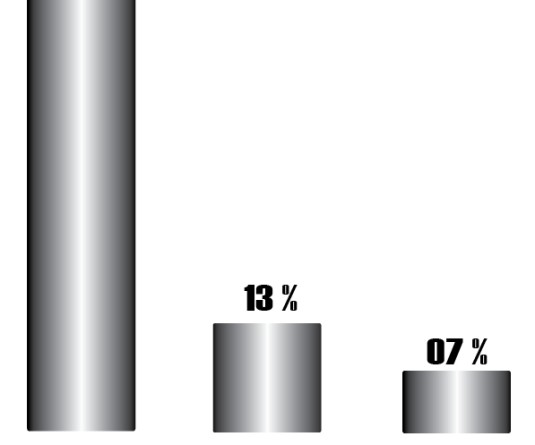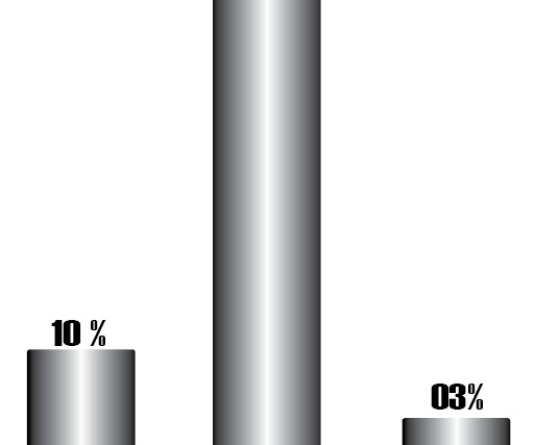
Some of those who voted yes had this to say:
• We need good legislation for religion to go forward. The church should be given equal rights to participate in policy making at least in areas which can be tackled by them.
• It is an irony that Nagas have left moral issues for the greed of money and power. There is a gap definitely.
• The active involvement of the church in politics has created separate groups even among the churches. So many different units and organisation have crept on just because they do not agree to unity.
• People don’t realise politics and religion don’t go hand in hand. They should know where to draw the line and not involve in each others activities in an active way.
• Its so ugly to see church leaders involving in the state matters so much so that they become ring leaders during elections. Henceforth, politicians are oblige to commit themselves to the whims of the church people. It is the cycle which has to be stopped. Separation comes when both parties do not confront to each others views.
• Definitely, the state politics cannot take what the church has to say and vice- versa. The clashes of views end in a bad relation among the community as a whole. It can affect the community in every aspect of life.
• The church cannot force the state to take up their views always and the church too cannot take what the state politics has to say.
• Materialism has crept in. The church leaders want good cars and Scorpios to move around. These days they never walk miles to preach the gospel. All these church expenses are borne by the members only. And who are the members? The big shots in the State. The conclusion is, no matter the indecisive views amongst them, the human greed is the same. The difference is marginal.
• Politics have crept into the church too. It has created parties among the church members. And ultimately the community is affected by its indifferences.
• Why cant some of our church leaders stop his involvement into the state politics? Will he preach something to his parties and something to his opponents? What has become of our churches?
• Yes...differences arise because both the parties think they are the best or they are the bosses.
• There are instances the big shots bribe the church indirectly through donations. And the church prays for the kind man. Who doesnt love money?
• Apart from the state exchequer, churches in Nagaland are the single most body/organization having wealth amounting to crores. I for one sometimes wonder where is all these money going? Why don’t the church too help the state in its developmental issues? And not taking donation s every time.
• Some churches are so rich they have status equivalent to state MLA's. These make them see things differently.
• How will the state politicians listen to the religious sect when they are donating so much to them?
• The difference among them is like black and white. It is there for all to see.
• Religion should no way be close to State. Church will ruin the State. Mind ones own business. History proves the fact. All major conflicts started with religion.
• If only the church leaders were good enough then they wouldn’t have let politics harm the relation.
• Our people are so good in hypocrisy that, even the most crooked of all will be the most saintly at least on Sundays. This kind of community has abridged the good relation with the religious sect.
• Definitely YES!!!. Nagaland for Christ has become a past thing.
• Nagas have gone far away from their Christian roots and have lost the identity to the greed of money and power.
• There is separation of Church and State in Nagaland, not out of intention, but because both the Church and State are weak institutions and rudderless. Ideally, they should be co-existing together in a productive way, but both these institutions are not functioning in the manner they should. The institution of the Church is much older than the state of Nagaland. The state is only in its 40+ years, which the Church is more than 135 years. But sorry, they are both immature, caught up in their petty politics and are not playing the role they should.
Some of those who voted no had this to say:
• There is no separation between the church and the state. Religion is the outcome of state. They are one. Every thing that happens in religion is because of the state (society).
• In human society, both Church and State are related and they have shaped each other. Without them, the human society will not grow. So there is a natural relation between Church and State because both are the pillars of human society. Church and State must learn how to co-exist together, they must both see that the other is not becoming too powerful. But in the case of the Nagas, there is no adjustment between Church and State. In some cases the Church has become too powerful and in some cases the State has acquired too much power. Both these extremes are very unhealthy for the society. One of things lacking in Nagaland is that there are no strong Church leaders that the public can look up to. This is why the State can so easily manipulate and control the Church. If only there were strong, courageous Church leaders that are respected by the public, the State will think twice before trying to impose itself on the Church.
• NO, I see no separation between Church and State in Nagaland. Time and Time again, the Church institutions continue to involve themselves in legislation making, and this is not a good sign. In any society, State and Religious Institutions have to co-exist together and in the greater interest of democracy, it is important that the Church does not involve themselves in legislation making.
Some of those who voted others had this to say:
• Indirectly there is no separation of Church and State as far as Nagaland is concerned. It is tragic that the Church is influencing legislation, this is not a good trend, because it risks becoming a theocratic state. It will also not be wrong to say that the Church depends on the state to meet its requirements, and this dependency has prevented the Church from speaking out against corruption.
• There is no contradiction between politics and faith. They are interrelated. It is not right to say that the church leaders should not be involved in politics, because politics too is within the realm of God. But things go terribly wrong when church leaders start getting politicized and start involving in electoral politics. When the church leaders are unable to rise above party politics, than things begin to go really bad and often the Church is compromised.
• A narrow notion exists in the Naga society on religion and so there is difficulty in appreciating how the Church and State should co-exist together in a healthy way. What has made it difficult is the behavior of the Church leaders, their attitude of holier than thou to the masses, but their inability to courageously question the State on corruption and nepotism has only put the Church leaders in bad light. There is a serious credibility issue and there is loss of public trust on church leaders, and unless this changes, there will be serious problems.






